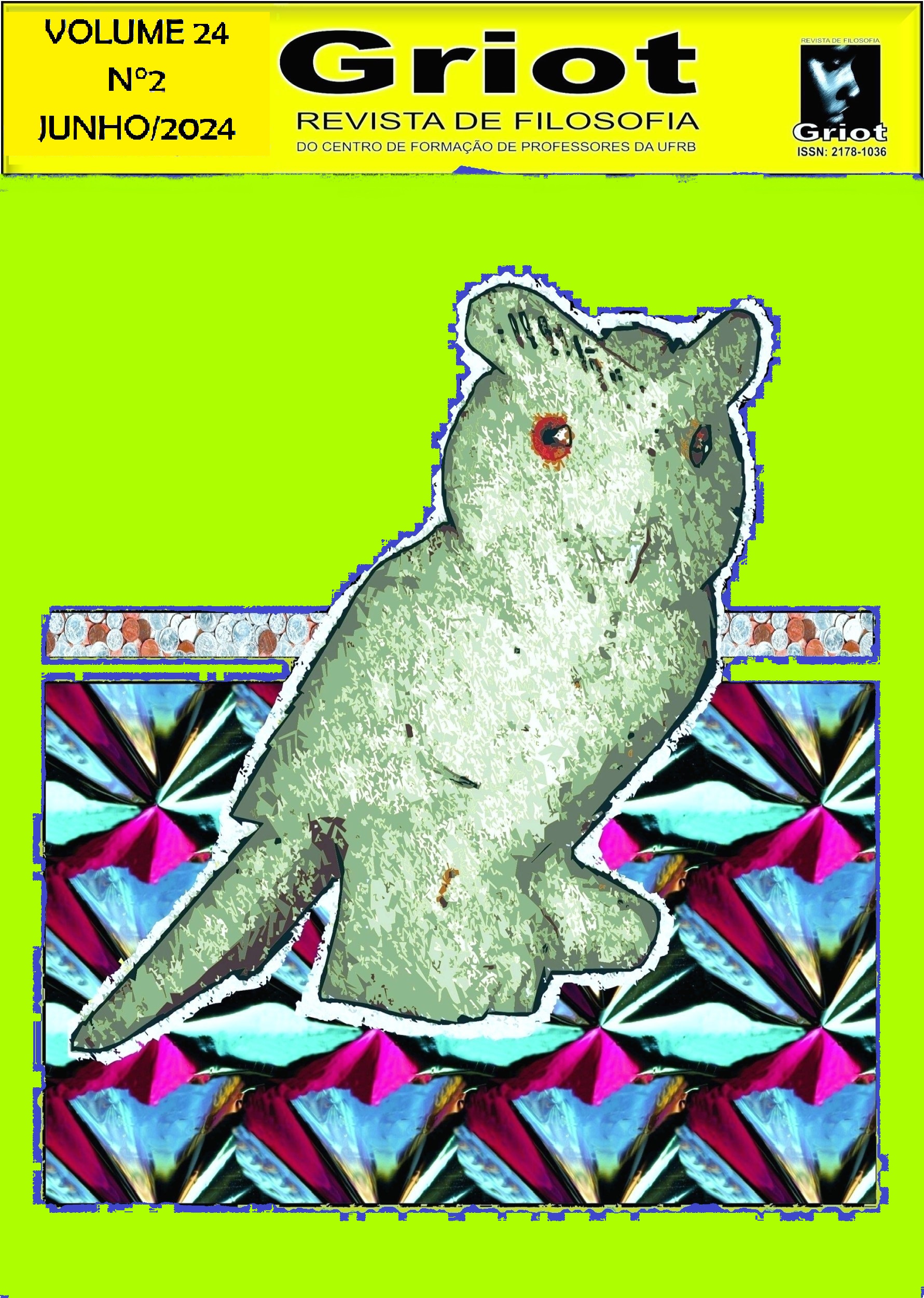Embodied intentionality: a convergence between sartrean philosophy and sensorimotor enactivism
DOI:
https://doi.org/10.31977/grirfi.v24i2.4804Keywords:
Intentionality; Enactivism; Sartre; Phenomenology; Embodied Cognition; Externalism.Abstract
In Sartrean philosophy, the body is a central element in explaining the nature of intentionality, that is, the nature of how our consciousness apprehends reality. His corporeal phenomenology aims to refute the followers of the Cartesian tradition of the mind. At the same time, in the contemporary philosophy of mind and cognition, supporters of the enactivist tradition seek to elucidate the body's central role in the constitution of cognition. Likewise, their opponents are the adherents of cognitivism, who see the locus of cognition in the brain as an informational processing device for symbolic (representational) content. In this article, we intend to develop a close relationship between the Sartrean conception of intentionality and that offered by sensorimotor enactivism. Both defend the centrality of the body in so-called "cognitive" or "mental" processes; both defend a kind of externalism about mental content; and both criticize the internalist and representationalist paradigm focused on internal processes only located in the brain. These similarities allow us to trace a relationship of continuity between Sartrean phenomenology and the embodied traditions of the mind.
Downloads
References
BARRETT, L. Beyond the brain: how body and environment shape animal and human minds. Princeton: Princeton University Press, 2011.
BERMÚDEZ, J. Nonconceptual content: from perceptual experience to subpersonal computational states. Em: GUNTHER, York (ed.). Essays on nonconceptual content. Cambridge MA: The Mit Press, p. 183-215, 2003.
CAMPOS, V. O cógito pré-reflexivo: Jean-Paul Sartre e a filosofia da mente. Belo Horizonte, MG. Dissertação de mestrado. Universidade Federal de Minas Gerais, 2018.
CLARK, A. Being there: putting brain, body, and world together again. Massachusetts: MIT Press, 1998.
DESCARTES, R. Meditações metafísicas. 2. ed. São Paulo: Martins Fontes, 2005.
EGAN, F. Representationalism. Em: MARGOLIS, E; SAMUELS, R; STICH, S. (ed.). The oxford handbook of philosophy of cognitive science. Oxford: Oxford University Press, 2012. p. 250-272.
HATZIMOYSIS, A. The philosophy of Sartre. Abingdon: Routledge, 2014.
KIM, J. Philosophy of mind. 3. ed. Boulder: Westview Press, 2011.
NOË, A. Action in perception. Massachusetts: MIT Press, 2004.
NOË, A. Out of our heads: why you are not your brain, and other lessons from the biology of consciousness. New York: Hill and Wang, 2009.
O’CALLAGHAN, C. Perception. Em: FRANKISH, K; RAMSEY, W. (ed.). The Cambridge handbook of science. Cambridge: Cambridge University Press, 2012. p. 73-91.
O’REGAN, J. Solving the “real” mysteries of visual perception: the world as an outside memory. Canadian journal of psychology, v. 46, n. 3, p. 461–488, 1992.
PICCININI, G. Computationalism. Em: MARGOLIS, E; SAMUELS, R; STICH, SP. (ed.). The oxford handbook of philosophy of cognitive science. Oxford: Oxford University Press, 2012. p. 222-250.
PINKER, S. Como a mente funciona. 2º ed. São Paulo: Companhia das Letras, 2001.
ROWLANDS, M. Sartre, consciousness, and intentionality. Phenomenology and the cognitive sciences, v. 12, n. 3, p. 521–536, 2013.
SARTRE, J. O ser e o nada: ensaio de ontologia fenomenológica. Petrópolis: Vozes, 2007.
SHAPIRO, L. Embodied cognition. Abingdon: Routledge, 2011.
STERELNY, K. The representational theory of mind: an introduction. Oxford: Basil Blackwell Ltd, 1990.
VARELA, F.THOMPSON, E. Rosch, E. The embodied mind (Revised Ed). MIT Press, 2016.
WARD, D. SILVERMAN, D. VILLALOBOS, M. Introduction: The varieties of enactivism. Topoi, v. 36, n. 3, p. 365–375, 2017.
ZILIO, F. The body surpassed towards the world and perception surpassed towards action: A comparison between enactivism and Sartre’s phenomenology. Journal of French and Francophone Philosophy, v. 28, n. 1, p. 73–99, 2020.
Downloads
Published
How to Cite
Issue
Section
License
Copyright (c) 2024 Vinícius Francisco Apolinário, Thana Mara de Souza

This work is licensed under a Creative Commons Attribution 4.0 International License.
The authors who publish in Griot: Revista de Filosofia maintain the copyright and grant the magazine the right of first publication, with the work simultaneously licensed under the Creative Commons Attribution 4.0 International License, allowing sharing and adaptation, even for commercial purposes, with due recognition of authorship and initial publication in this journal. Read more...









































































